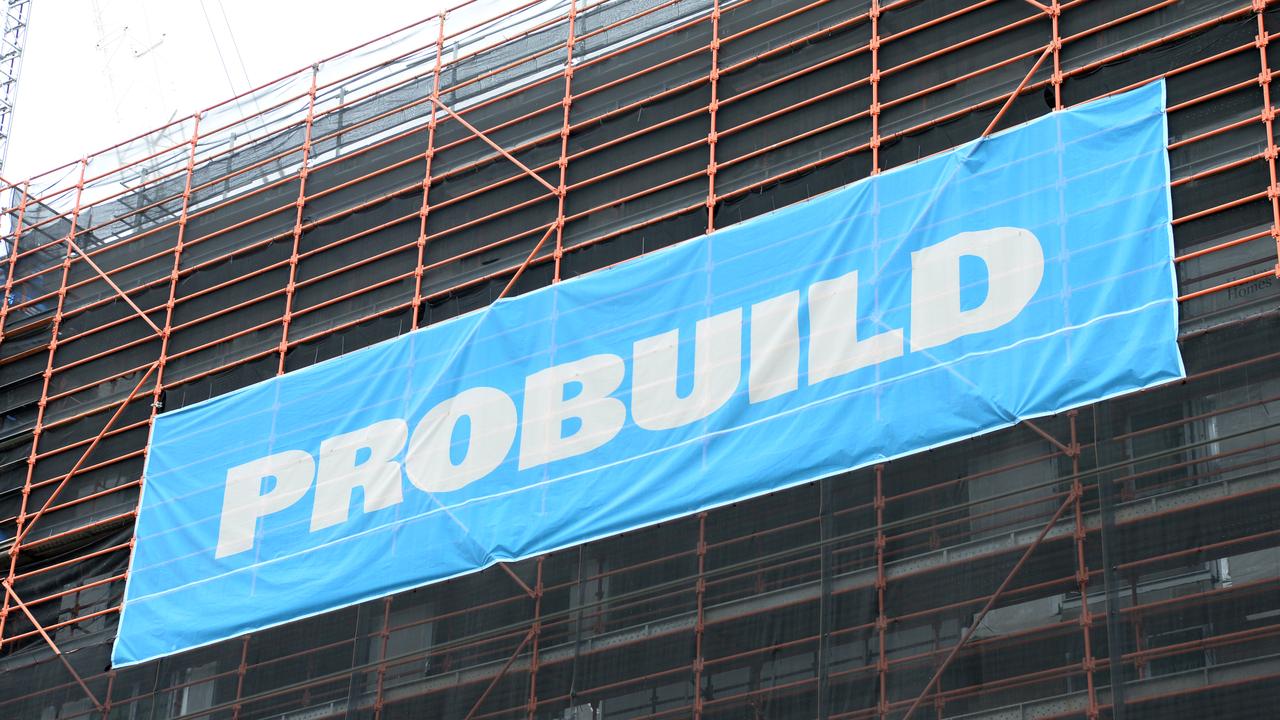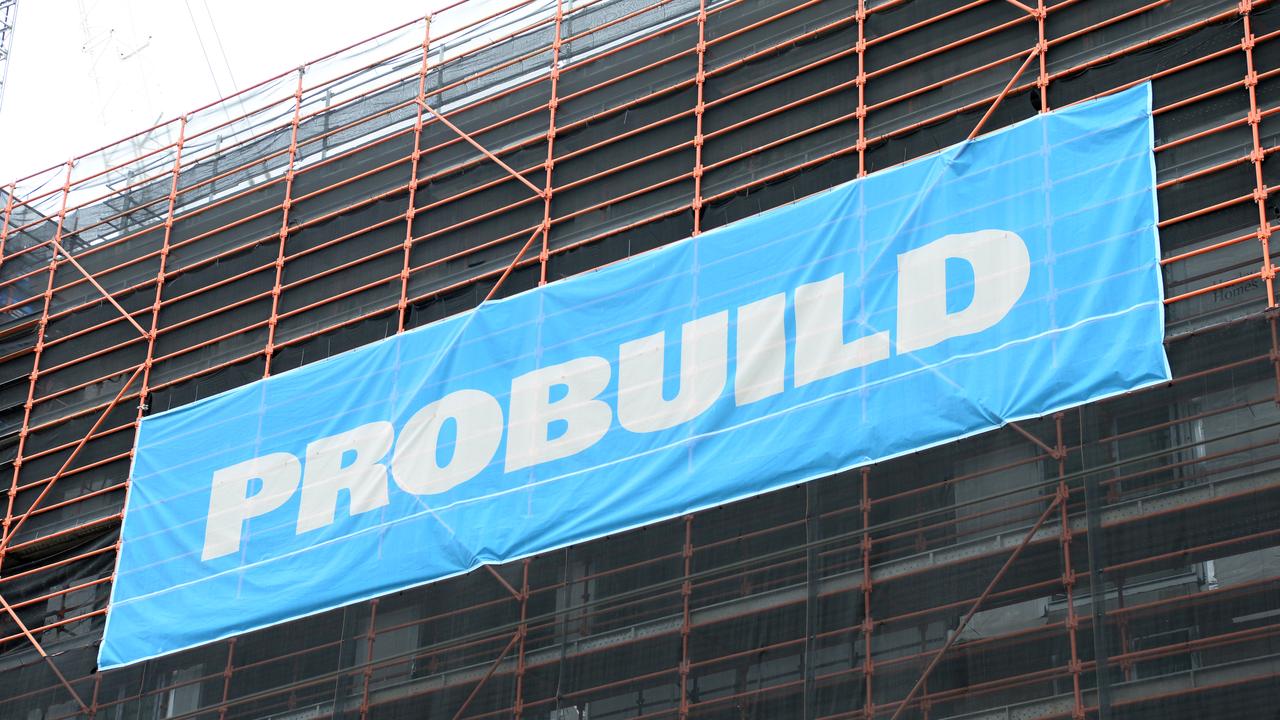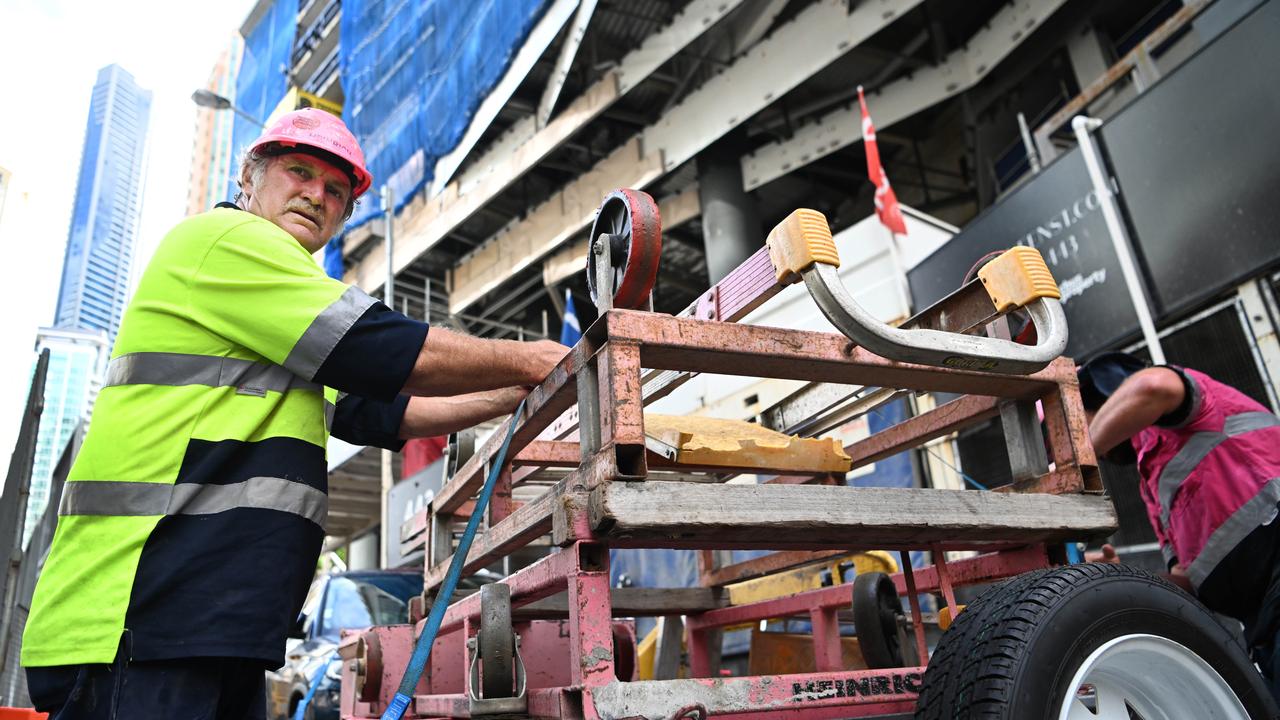Deloitte calls DOCA proposal the best outcome for Probuild Group creditors instead of liquidation
The sale of some Probuild Group businesses has slashed liabilities and saved jobs avoiding a “bloodbath” but creditors are still owed almost $350m and can only expect to get a portion of that back, administrators say.

Hundreds of creditors will be millions of dollars out of pocket from the collapse of construction giant Probuild Group despite the administrators’ successful business sales strategy that slashed claims by $270m and saved jobs.
Deloitte Australia has backed a proposal by Probuild’s South Africa parent company to pool its commitments ensuring smaller creditors receive between 50 cents and 71 cents and other creditors between 3.9 cents and 24.6 cents in the dollar of the almost $350m in current total liabilities.
In a report ahead of a June 30 creditors meeting, Deloitte Australia said the Deed of Company Arrangement (DOCA) proposed by WBHO Construction SA will result in a greater return to creditors than if the group’s companies went into liquidation and were wound up.
The DOCA – which is a binding arrangement between a company and its creditors governing how the company’s affairs will be dealt with – would also see employee entitlements to be paid in full and earlier than in a liquidation scenario and a distribution to ordinary unsecured creditors of an estimated $9.4m to $45.1m, subject to future recoveries.
“The DOCA will provide an average return to small creditors (under $25,000) of between 71 per cent and 50 per cent and to other creditors between 24.6 per cent and 3.9 per cent under a high scenario and a low scenario respectively,” Deloitte said in the report.

On February 23, 18 WBHO Australia Group companies went into voluntary administration after its South African parent Wilson Bayly Holmes-Ovcon pulled the pin on further financial help.
Deloitte Turnaround & Restructuring team Sal Algeri, Jason Tracy, Matt Donnelly and David Orr embarked on an urgent sale strategy of the Group’s businesses and returned a number of projects to developers to complete.
The report said the sale of five Probuild Melbourne projects to Roberts Co and WBHO Infrastructure to SRG Global Civil Pty Ltd resulted in a significant reduction in overall creditor claims by $270m to $347.2m, from $617.4m at the date of appointment.
If the sales had not gone through creditor claims overall would been well in excess of $1bn.
Mr Algeri said they have avoided a potential “bloodbath out there” and the creditor's report was an important milestone in what has been as highly complex and high profile process.
“In just over four months, our strategy of continuing to trade, recommence certain key projects, and pursuing an accelerated sale of the business, has assured the completion of six key projects, continuity of employment for more nearly 200 people, continuity of business for subcontractors, and a significant reduction in overall creditor claims,” he said.
“Without this outcome, the potential failure of subcontractors, and the associated impacts on business owners, their employees and the Victorian economy, and the potential flow-on industry impacts, also can’t be underestimated.
“Creditors now have the opportunity to make a final decision on the future of the companies, including the best possible returns available via the proposed Deed of Company Arrangement.”
Parent company WBHO-SA is tipping in between $15m and almost $30m into the DOCA.
More than 2300 creditors — people or entities claiming to be owed money — have lodged claims and on June 30 will be given the choice of accepting a DOCA or put the companies into liquidation.

Mr Algeri said DOCA outlines path for recovering receivables.
“We would then distribute to creditors according to their ranking, with employees getting 100 per cent. It’s a really good outcome but at this stage you never know how much you are going to get,” he said.
Probuild was founded in Melbourne in 1987 and WBHO-SA became majority owner in 2006. When it collapsed it was one of Australia’s largest construction companies, was well advanced on a national pipeline of projects worth $5bn and had more than 800 employees involved in 20 projects across Australia.
The report found that while investigations were preliminary, the company may have been insolvent by February 1 2022, if not earlier.
“Causes of action for trading while insolvent and related breach of director duties may
potentially exist,” the report said.
“In addition to a possible claim for insolvent trading against the Probuild Group’s directors and parent entities, the letter of support provided by WBHO Construction SA may provide the basis for causes of action for the recovery of losses suffered by the Probuild Group and creditors.”
The report said Probuild Group’s collapse can ultimately be attributed to the 443 Queen St apartment project in Brisbane and The Western Ringroad Upgrade project in Melbourne.
which is a project within WHBO Infrastructure.
Other reason cited were the cumulative impact of smaller losses on other projects; the withdrawal of shareholder support; and increasing costs to complete contracts due to Covid-19 effects on margins and resultant project delays.
Cbus Property chief executive Adran Pozzo, which is developing 443 Queen St, said Hutchinson Builders will complete construction in at least 12 months and they anticipating settlements will commence in the third quarter of 2023.
“The majority of residences have been exchanged. We have recently received a small number of residences back, as some purchasers have elected to exercise their rights under the sunset date provisions of their contract of sale,” he said.
More Coverage
Originally published as Deloitte calls DOCA proposal the best outcome for Probuild Group creditors instead of liquidation





